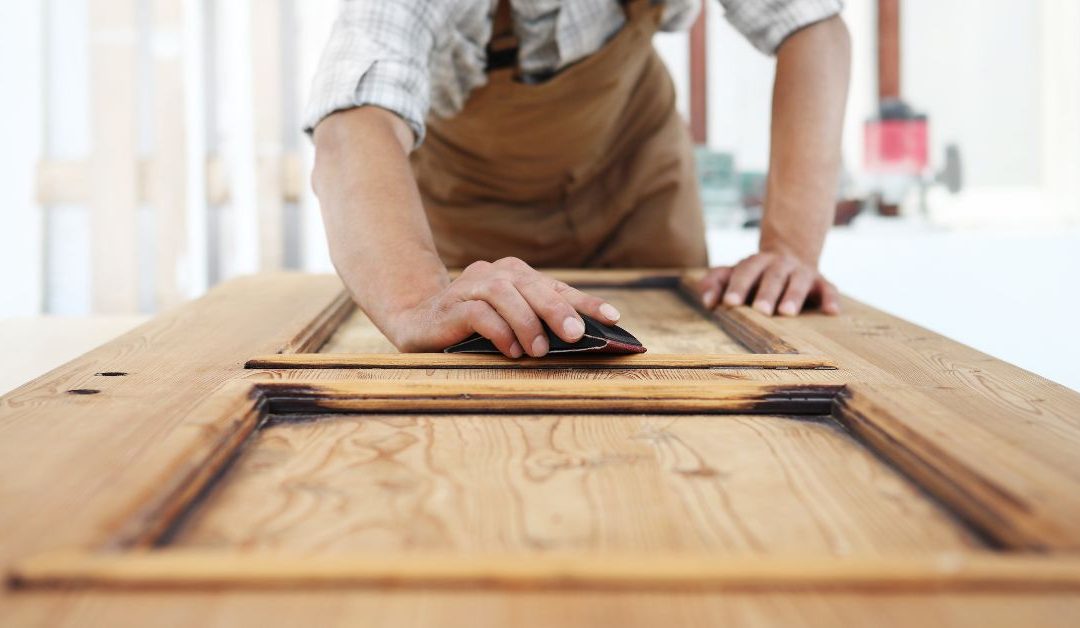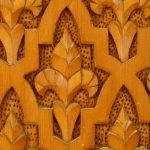Morocco is famous for its beautiful woodworking, which has been part of their culture for a very long time. This craftsmanship is important in international relations. This shows how Morocco values its culture and promotes cooperation between countries.
In this article, we will learn about Moroccan woodworking. Plus, how it can help build positive relationships between nations.
Moroccans take pride in their woodworking and pass down their skills through generations. It reminds them of their traditions that still influence the world today.
By exploring different aspects of this craft we can learn about Morocco’s rich heritage and its role in the global community.
Historical Context
The beautiful details of Moroccan woodworking have amazed people for hundreds of years. Skilled artisans craft each piece, telling stories with their work. When you touch the smooth cedarwood, you can feel the history of craftsmanship.
Moroccan woodworking is more than art; it represents friendship and connection between nations. It’s rooted in traditions that go back many years, and it brings people from different cultures together.
The boxes, furniture, and jewelry symbolize understanding and appreciation for each other’s cultures. When we exchange these works with Morocco, we show our desire for peace and respect among all people, no matter where they come from.
As technology improves, we can build relationships with other countries through diplomacy. Sharing these beautiful pieces shows that we value unity and kindness towards one another, no matter our differences.
Traditional Techniques
Moroccan woodworking is well-known and respected around the world. Local artisans have been practicing their craft for many years, creating amazing works of art.
They share their traditions with other countries and learn from different cultures.
Morocco’s unique style has made its woodwork famous worldwide. Being at important events like diplomatic dinners or royal weddings. From small souvenirs to big thrones, they have a wide range of beautiful items.
The industry promotes cultural exchange and mutual appreciation. It helps build relationships based on respect and understanding, even in times of political tension.
Unique Styles
Moroccan woodworking is famous for its traditional techniques and unique styles. Moroccan woodworking blends global influences, appealing to foreign markets, and representing Morocco’s identity.
The intricate patterns in Moroccan woodwork reflect the country’s diverse history and culture. These pieces hold aesthetic and political value. Being much appreciated worldwide for preserving old traditions and adapting to new times.
This kind of artistry helps people from different countries connect and appreciate shared values. Through dialogue and understanding, we can build positive relationships and successful diplomatic connections.
Common Materials
Moroccan woodworking is a craft that is very important to Morocco’s culture and history. It’s a symbol of their artistic skills and has even helped with diplomacy between Morocco and other countries.
People all over the world love the modern designs that come from this exchange of ideas and materials.
Morocco has diverse woodworking techniques, ranging from traditional to modern. This makes every piece special and influenced by the local environment and the skills of the craftsmen.
Countries now collaborate to share woodworking knowledge due to its diverse nature. It’s a great way to connect and learn from different approaches to design and craftsmanship.
This collaboration leads to investments that support the economy. Plus, preserve cultural heritage worldwide.
Thus, such endeavors will play an essential part in ensuring that this precious craft continues to unite us all far into the future.
Essential Tools
Moroccan woodworking is a skill that people in the country are proud of. It’s admired by people from other countries. These craftsmen have spent many years perfecting their techniques and learning new ones. They use different tools like saws, chisels, planes, and more to make furniture, sculptures, and decorations. Moroccan craftsmen have become world-famous for using tools. they as well passed down their knowledge to the next generation. People appreciate the hard work and skills it takes to make each piece. This shows how important Morocco’s woodworking legacy is on a global scale.
Cultural Significance
Moroccan woodworking is a significant part of the country’s culture and artistry. Talented craftsmen have created beautiful and intricate pieces for generations, much regarded worldwide.
As their work traveled to other countries, people recognized it as unique and special. The comparison with other woodworkers raised its status and made it vital for international relations.
The impact of Moroccan woodworking is vast, and its influence is present in many different cultures. Various regions have adopted elements of this traditional skill in their style and customs. This reached from furniture to sculptures.
As more people discover this type of craftsmanship, it gains even more admiration and popularity worldwide. What began as a creative practice long ago has now become a symbol of understanding and acceptance among nations. Strengthening bonds through shared beauty and skilled collaboration.
Promoting International Relations
Moroccan woodworking helps promote friendships between countries and cultures worldwide.
The colorful and detailed designs of Moroccan woodwork represent the country’s culture. This helped connect with people from different backgrounds.
These artworks symbolize goodwill and peace between nations.
Moroccans display their art in diplomatic settings to show respect for other customs.
Artists from Morocco and other countries collaborate and learn from each other. This fosters cooperation between their nations.
These exchanges lead to better communication and positive outcomes globally.
Moroccan woodworking has the potential to create strong international relationships. This is possible through cultural exchange and understanding.
Cultural Preservation
Morocco values its cultural heritage, and woodworking is a special craft that has been here for generations.
The art and skill of Moroccan woodworking are now known worldwide, representing the country’s culture on a global scale.
Other countries admire and embrace Moroccan furniture made from local materials. This led to stronger diplomatic relations.
This recognition has brought economic benefits to local communities. Thus, creating jobs and showcasing the talents of skilled craftsmen.
Moroccan woodworking builds connections between nations, fostering mutual understanding and benefiting all.
Economic Benefits
Moroccan woodworking is popular around the world, and that’s great for their economy.
Foreigners love Moroccan furniture and decor for their unique designs and skilled craftsmanship.
Because of this demand, Morocco has made good trade agreements with other nations, which helps their economy grow.
Buyers know that when they get a piece from a skilled Moroccan artisan, they are getting something special and valuable that will last a long time.
Morocco’s success has made it a key player in the global market, building strong relationships with powerful countries.
It’s a win-win situation for everyone involved!
Sustainable Practices
How can Moroccan woodworking use sustainable practices to benefit international relations?
To work together, it’s important to use green harvesting and fair trade. Green harvesting means using resources the responsible way so they don’t run out. Morocco can do this by harvesting materials like cedar, juniper, and olive trees in a way that keeps the environment safe for the future.
Fairtrade helps protect workers and ensures they are much treated well. Fair wages and good working conditions build trust in Moroccan businesses.
Using these sustainable practices in international relations shows respect and creates economic stability. It’s a great way for different countries to work together and help each other out.
Frequent-Asked Questions
What Are The Diplomatic Implications Of Moroccan Woodworking?
Moroccan woodworking brings countries together, letting them learn about each other’s culture.
Many countries admire the unique skill and craftsmanship of this work and want to trade goods with Morocco.
This creates better market access and benefits all involved in international relations.
Moroccan woodworking is important for global diplomacy and trade.
How Does Moroccan Woodworking Contribute To International Relations?
Moroccan woodworking is a symbol of how countries exchange their unique art and learn about each other’s cultures and beliefs.
Moroccan woodworking brings people from different backgrounds together, creating meaningful connections between countries. It’s not only about art; it can bridge gaps and bring people closer despite politics or geography.
What Are The Economic Benefits Of Moroccan Woodworking?
Moroccan woodworking is a special part of their culture and has been important in the furniture trade for a long time.
Moroccan woodworking supports local artisans and attracts international customers, benefiting the economy.
This craft creates jobs for people in rural areas and helps with international relations.
What Are The Benefits Of Promoting Moroccan Woodworking Worldwide?
Sharing Moroccan woodworking with other countries brings many benefits. Both countries get to know each other’s traditional skills better. This helps the economy grow as more people want these products from Morocco.
Woodworking connects nations, fostering friendships and trust despite past disagreements. It’s a great way for countries to work together and learn from each other on a global level.
What Are The Sustainable Practices Associated With Moroccan Woodworking?
Moroccan woodworking is well-known for its detailed carvings, traditional methods, and bright colors. Consider sustainable practices to protect the environment. Plus, aim to preserve cultural exchange when promoting these works globally.
The woodworkers in Morocco are very much dedicated to sustainable production. They use renewable materials like cork oak and eucalyptus whenever possible. They try as well to recycle or repurpose wood, like using the ‘thuya burl’ technique that combines wood scraps with resin and other materials.
They help the environment and keep Moroccan woodworking beautiful and detailed.
Moroccan woodworking benefits local communities and international relations.
Moroccan woodworking’s sustainable methods and economic benefits have made it popular worldwide. This boosted Morocco’s global reputation.
Promoting Moroccan woodworking and encouraging global collaboration brings people together worldwide!







